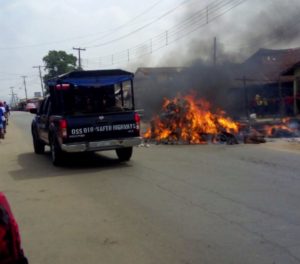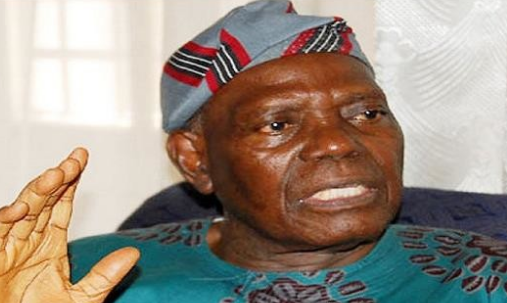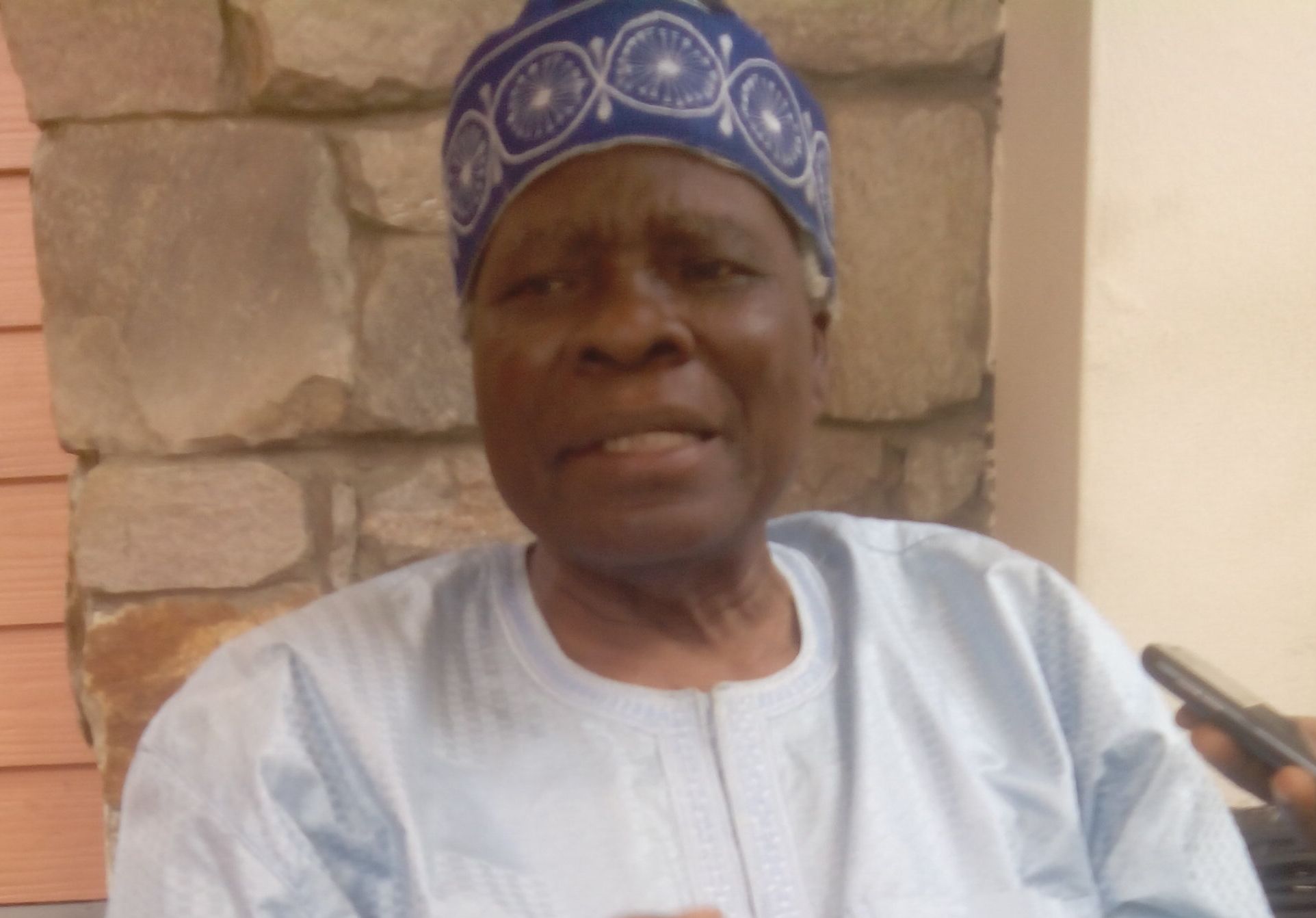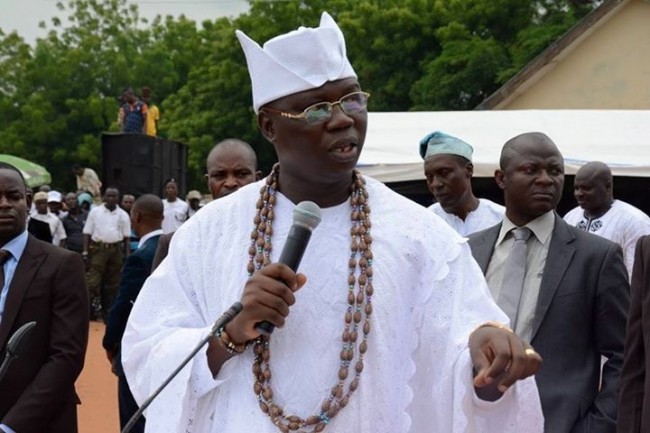By Femi Aribisala
President Buhari is a Northerner. He sees Nigeria essentially from a Northern perspective. Even El-Rufai, one of his more ardent supporters, admitted in the past that: “(Buhari’s) insensitivity to Nigeria’s diversity and his parochial focus are already well-known.”
Buhari favours the North in everything. According to Jim Yong Kim, the president of the World Bank, Buhari required that the bank’s development programs in Nigeria be skewed towards the North. During his tenure as Chairman of the Petroleum (Special) Trust Fund (PTF), he located over 70% of the Fund’s projects in the North, with less than 30% devoted to the South.
This tendency has continued in his presidency. Major appointments are reserved disproportionately to Northerners. As a result, the security architecture of the country is extremely lopsided.
The Minister of Defence, Brig.-Gen. Mansur Dan Ali (rtd.); the Minister of Interior, Lt.-Gen. Abdulrahman Dambazau (rtd); the Chief of Army Staff, Lt.-Gen. Tukur Yusuf Buratai; the National Security Adviser, Maj-Gen. Babagana Monguno (rtd.); the Chief of Air Staff, Air Marshal Sadique Abubakar; and the Commandant-General of the Nigeria Security and Civil Defence Corps, Abdullahi Muhammadu; are all from the North.
Said Yinka Odumakin of the Afenifere: “The pattern of the appointments today has not shown enough sensitivity to the diversity of Nigeria. That kind of arrangement is a situation from which genocide germinates because there is no balance in the security architecture of the country.”
But the president is obviously unconcerned about this. Last year, he yet again replaced the Northern Director-General of the Department of State Services, (DSS), Lawal Musa Daura, with Yusuf Magaji Bichi; another Northerner. This year, he again replaced the Northern Acting Inspector-General of Police (IGP), Ibrahim Idris, with still another Northerner; Mohammed Adamu.
Fulani president
President Buhari is a Fulani man. Although he is now president of Nigeria, he has yet to rise to the status of a national statesman. He has not stopped being, to all intents and purposes, a Fulani man. At his inaugural, he reassured Nigerians by saying: “I belong to everybody and I belong to nobody.” However, he customarily gives preferential treatment to the Fulanis.
Between 1983 and 1985, Peter Onu of Nigeria was Acting Secretary-General of the OAU. At the 1985 Summit in Addis Ababa, statesmen like Julius Nyerere, President of Tanzania, lobbied for Onu’s election as substantive Secretary-General. However, there was a major stumbling block to Peter Onu’s candidature: his Head of State, Muhammadu Buhari, was campaigning against him.
In the election of the OAU Secretary-General in 1985, Buhari voted against Nigeria and for Niger instead. He secured the election of Ide Oumarou, a Fulani man from Niger; as opposed to a Delta man from Nigeria. So doing, he became the first and only Head of State in the history of modern international relations to vote against his country in favour of his tribe.
Years later in 2000, General Buhari marched all the way from Daura to Ibadan to demand of Oyo State Governor, Lam Adeshina: “Why are your people killing my people?” Again, he was not referring to Nigerians as his people. Instead, he was an advocate for the rights of murderous Fulani herdsmen who killed Yoruba farmers that objected to their cattle grazing on their land and damaging their crops.
Indeed, President Buhari himself is a Fulani herdsman. In his asset declaration of 2015, the president revealed that he owns: “270 heads of cattle.” Not surprisingly, the Afenifere recently referred to him as “the grand patron of Miyetti Allah;” the Cattle Breeders Association of Nigeria (MACABAN).
Since his election in 2015, Fulani herdsmen have become a major menace in Nigeria. They invade other people’s lands with impunity and kill the owners. The British parliament observed that, under Buhari, the Fulani militia murdered more people “in 2015, 2016 and 2017 than even Boko Haram.”
No matter how long it takes for them to pillage and destroy their target communities, the police or military do not show up until they are done. It took them hours to kill more than 800 people in southern Kaduna in 2016 and about 200 in Plateau in June 2018. In both cases, neither the police nor the military intervened.
However, when the separatist Igbo group of Indigenous People of Biafra (IPOB) exercised their constitutional right to protest for the secession of Igboland from Nigeria, the government declared them a terrorist group and sent soldiers and police to deal with them. In the process, many Igbo youths were massacred.
Appeasement of killers
The Nigerian government’s approach to the marauding and pillaging of Fulani herdsmen has been that of appeasement. In the history of the Buhari administration, there is no record of the trial and conviction of murderous herdsmen. The president threatened to send soldiers to kill ballot-snatchers, but he does not proclaim such extra-judicial punishment on Fulani herdsmen.
Instead, they are molly-cuddled and sometimes given money. In his first national budget of 2016, he called for the allocation of money specifically to Fulani herdsmen. He proposed the establishment of Fulani cattle colonies in every state of the federation. That means the land of the indigenous people would be appropriated and given to Fulani herdsmen for their personal business.
When, in 2016, they killed over 800 people in the southern part of Kaduna State, the Governor of the state, Nasiru El-Rufai, a Fulani man himself, paid the killers and said he paid them so that they would not come back to kill more people in his state. He said: “there is a new governor who is Fulani like them and has no problem paying compensations.”
Just this year, a federal government delegation, led by the Minister of Interior, Abdul-Rahman Dambazau, met with the representatives of the Miyetti Allah. They were not arrested, as were the Shiites. Reports, denied by the government, claimed substantial monetary offers were made to the Miyetti Allah to persuade them to stop their marauding and killings.
However, there is a pattern to this allegation. In 2017, Buhari released some Boko Haram members who were in detention, as a trade for the release of some of the Chibok girls kidnapped in 2014. The people were allegedly released with a whooping amount of money paid by the government.
Alarm bells
Several factors have recently heightened concerns about the marauding activities of Fulani herdsmen in Nigeria. They are getting bolder and are moving further and further southward in search of grazing land. In the process, they are killing and pillaging with increased impunity.
Osai Ojigho, the director of Amnesty International Nigeria observes that: “the continuous failure to investigate gross human rights violations is fueling a dangerous disdain for the sanctity of human life in Nigeria.”
The situation has even raised international concern. Senior British parliamentarians have called for an immediate end to the killings, concerned that it can plunge Nigeria into a full-blown conflict that would destabilise the entire West African sub-region.
Lord Rambir Singh Suri said: “The situation has been exacerbated by inadequate government action which has enabled attacks to continue unabated. Beyond intermittent words of condemnation, the government has failed to formulate effective strategies to address this violence. This has entrenched impunity and emboldened perpetrators even further, leading to a growth in vigilantism and periodic retaliatory violence, as communities conclude they can no longer rely on government for protection or justice.”
In the middle of this crisis, the Commander of the Special Task Force (STF) in Plateau State, Major-General Atolagbe, was recently removed. The general served the Nigerian army for about 30 years, 27 of this with the United Nations. His problem started when he refused to allow the Fulani militia to have a field day in Plateau State. He arrested them and paraded them publicly, the first time this happened in Nigeria. He also arrested their financier.
But when he was ordered to transfer them to Abuja, he refused, suspecting they might simply be released. He insisted they should be tried in the area of jurisdiction where their crime was committed. He was ordered to stop arresting them and to release those he arrested to some ogas at the top. When he refused, insisting justice must be served, he was summarily dismissed.
Cattle settlements
In short, instead of impeding them, the Nigerian government seems to be the advocate of murderous Fulani herdsmen. The permanent secretary of the Ministry of Agriculture, Alhaji Muhammadu Umar, recently announced that the federal government would be establishing cattle settlements in 12 pilot states for the benefits of cattle rearers.
The government justified this by saying they are: “rural settlement in which animal farmers, not just cattle herders, will be settled in an organized place with provision of necessary and adequate basic amenities such as schools, hospitals, road networks, vet clinics, markets and manufacturing entities that will process and add value to meats and animal products. Beneficiaries will include all persons in animal husbandry, not only Fulani herders.”
But few in the South and Middle Belt believe the government anymore on this matter. Many see the government’s interest in cattle ranching simply as an insidious attempt to establish Fulani settlements all over the country.
The president had insisted the killer herdsmen are not from Nigeria, but from other West African countries. If so, why would he now want Nigerians to surrender or donate their ancestral land to immigrant herdsmen? Why is the government more focused on building ranches than on rebuilding plundered villages and compensating the victims?
Suspicions were further heightened by the discovery that the Federal Government has licensed a Fulani Radio Station, even though Fulani is not recognized as an official language in the 1999 Nigerian Constitution. This became further confirmation that it is promoting a Fulani agenda.
Other actions taken by the government have only complicated matters. The president announced by executive decree that he was revoking the license of all legal gun-owners in the country. But when people are getting killed by herdsmen carrying AK47 rifles, the response of the government should not be the revoking of legal gun-ownership.
This gives the cynical the impression that instead of dealing with the marauding herdsmen, the government is making it easier for them to attack farmlands with impunity. Where, in any case, do herdsmen get the money to purchase AK47 rifles? Surely, the poor herdsmen who walk their herds are not the owners of the cows they herd.
So who is supplying them with these arms and why is the government more concerned about those owning arms legally and not hurting anyone with them, than about those carrying arms illegally and killing innocent people with them? Why does the government want to disarm legal gun-owners, but shows no interest in disarming illegal gun-carriers?
CONTINUED: THE BETRAYAL OF APC YORUBA POLITICIANS.



![Excitement as Angelique Kidjo speaks Yoruba [VIDEO]](https://thenewsguru.ng/wp-content/uploads/2020/01/Angelique-Kidjo.jpg)
